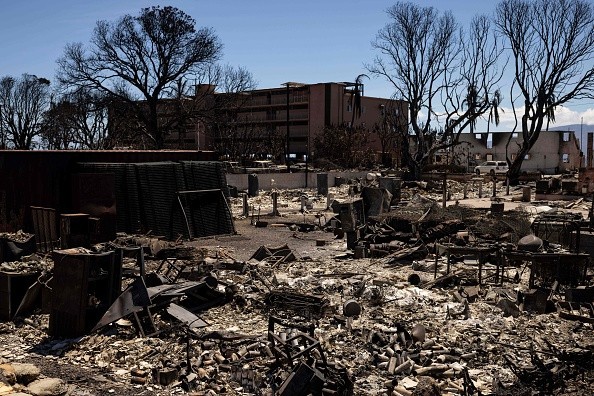Maui children still face a mental health crisis and housing insecurity after the deadly wildfire nearly four months ago in Hawaii on August 8.
The August 8 wildfire was recognized as the deadliest in modern US history, killing 100 people and displacing 11,000.
Maui Children Face Mental Health Crisis, Housing Insecurity

The survivors of the deadly wildfire described scenes of melting cars and bodies in trees, which caused severe mental health implications for children. They developed trauma due to temporary living adjustments and still process their grief more acutely than adults.
Maryann Kobatake, a Native Hawaiian, said her 18-year-old nephew helped a friend's grandmother and cousins run for safety. She said that her nephew heard screams and witnessed the carnage that still haunts him while on the drive out of a burning Front Street.
The nephew still has not discussed further details on what he had seen with her or other family members. Kobatake thinks that his nephew does not want to relive the event by talking, and she said that she was still trying to get him to open up to her.
She said she was worried that her nephew's habit of suppressing his emotions might result in PTSD symptoms and triggers since he has to drive by the destroyed town on his way to school every day.
Kobatake's nephew has been staying with her and her husband at a temporary home arranged by the Red Cross sheltering program, and they were continuously adjusting to their new reality of sharing donated clothes, food, and water from family-run distribution hubs.
Since schools in Lahaina reopened in mid-October, the Maui County certified community behavioral health clinic has seen increasing reports of parents seeking counseling and psychotherapy for their children.
John Oliver, the clinic's director, said that instability, loss, and fear of the unknown were some of the greatest challenges children are confronting post-fire, the long-term impact of which could include depression, anxiety, and increased risk of substance abuse.
Miguel Ceballos, a resident and a father of four, shared that his biggest concern was housing insecurity as the fire destroyed their three-bedroom rental apartment. They have been displaced seven times already and once placed in a one-bedroom unit where they had to take turns sleeping on couch cushions on the floor.
He said that the displacement affected his son as he lost interest in going to school and refused to wake up in the morning. His daughter also became sad and withdrawn.
Therapists Suggest Healthy Coping Behaviors
Skye Horie, a licensed marriage and family therapist at the clinic Play Therapy Maui, said that adjusting to a new normal of moving around could be particularly traumatizing for young people. She said, "Until they have more permanent housing, there will be that ongoing stress of not feeling safe and settled."
Horie encouraged parents to share their thoughts and feelings about the fire with their children, including what went wrong and what could have been done differently. She said the kids will do the same if parents avoid discussing the incident.
Oliver, of the behavioral health clinic, witnessed some patients express frustration with repeatedly checking in with the Federal Emergency Management Agency (Fema) and the Red Cross to continue receiving benefits.
Furthermore, other barriers include medical bills and a lack of transportation to and from services. Oliver said people need more transparency in what is happening to them as everything feels so out of control.
Related Article : Los Angeles I-10 Freeway Could Trigger Massive Traffic After Fire Prompts Shut Down









